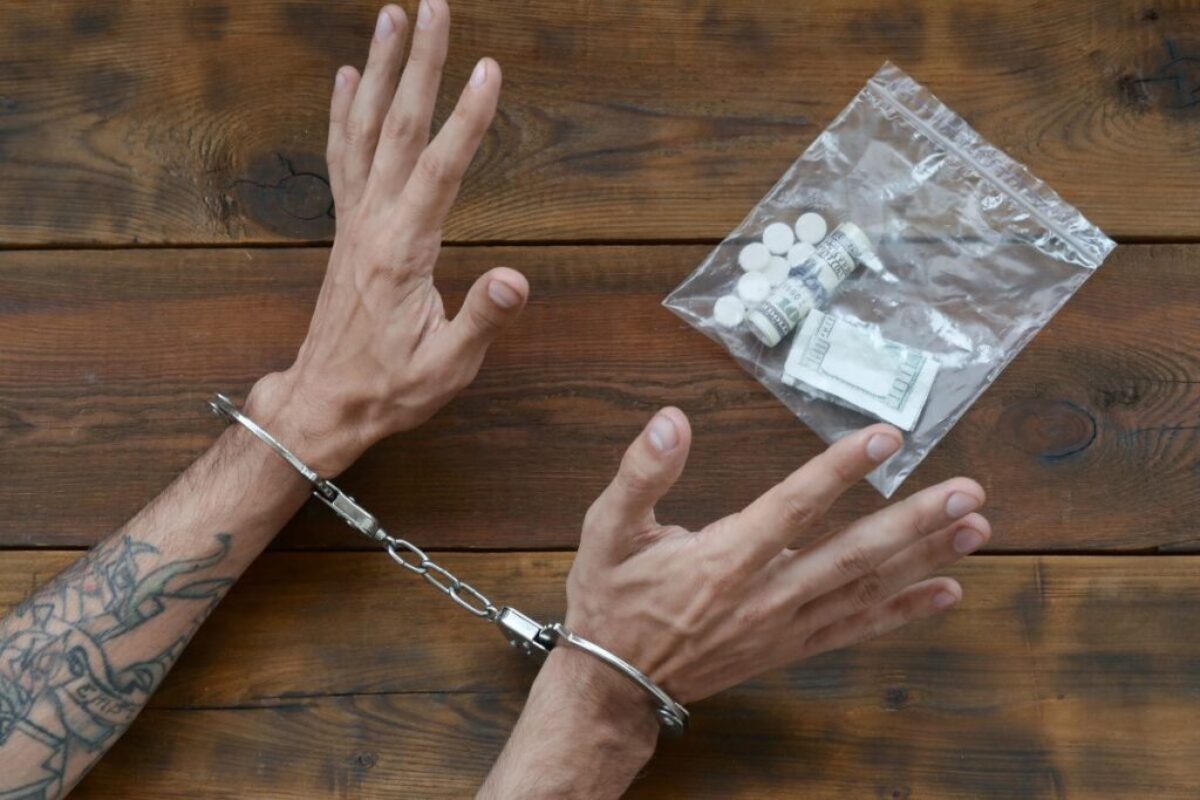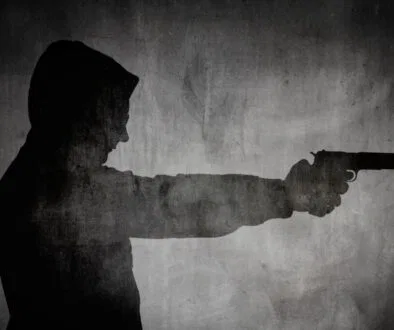What Is The Punishment For Drug Charges?

Published December 14, 2023
Trapped amid a war that isn’t your own? Drug charges have the power to shatter lives in an instant. Involvement with drugs is widely known to be dangerous. It leads to a complex web of legal complications, often focused on drug possession. Yet, there’s still hope. Escaping drug possession charges can be challenging, but it’s achievable.
However, when accusations escalate to drug trafficking, a true tempest brews. This charge is not ordinary; it’s a high-stakes game with seemingly stacked odds. The term ‘drug trafficking’ brings to mind long legal disputes. It also makes one think of powerful prosecutors and the chance of going to jail.
Whether you or someone you know is facing these charges, remember that every storm has a calm center. Find your own, hold your ground, and bravely resist. Because when it comes to your freedom, it’s not just about surviving the storm—it’s about learning to dance gracefully in the rain.

What Is Drug Trafficking?
Drug trafficking involves cultivating, manufacturing, and selling illegal substances. These substances are subject to laws prohibiting their use and sale. These include cocaine and heroin, among many things.
The definition in dictionaries doesn’t accurately represent drug trafficking charges. An individual can still get charged with the crime even if they don’t manufacture, much less cultivate, the substance. In other words, it takes less than the actual drug trafficking definition to be convicted.
Most states consider drug trafficking proven if the investigation shows transportation, importation, or sale. However, there are two conditions.
- The person must have done it voluntarily or knowingly.
- The amount of drugs that the person possesses exceeds a certain amount.
The first one is a standard condition among all states. The second, however, may have different variations from state to state.
What Amount Of Drugs Is Considered Trafficking?
The court uses a specific threshold to identify a case of drug trafficking, such as a gram of cocaine. That threshold may vary not only according to the state or region but also to the type of drug or substance in question.
For your reference, here are the usual thresholds for three different narcotic substances:
- 50 kilograms of marijuana
- 100 grams of heroin
- 500 grams of cocaine
If someone has 40 kilograms of marijuana, they may only be charged with possession. The same will happen if they have less than 100 grams of heroin or 500 grams of cocaine. Again, these thresholds will vary according to the state.
Other drugs and substances that may get someone convicted of drug trafficking include:
- Methamphetamine
- Oxycodone
- Crack

What Is The Sentence For Drug Trafficking?
If you or a loved one was convicted of drug trafficking, you’re looking at potentially five years to a lifetime in prison and fines of up to $500,000 million. Keep in mind that this is just the general range. If prison is likely for you or a family member, consider getting jailing calling services.
The sentence is case-by-case and may vary according to several factors. The following section should cover that in greater detail.
Factors That Affect The Sentence For Drug Trafficking Charges
The court would typically look at four factors when determining the sentence for a drug trafficking case. In this section, we’ll look at these factors and how they affect the verdict.
1. Type of Drug
Marijuana is what most people think of when they hear about drug trafficking. However, other types of drugs and substances can be illegally trafficked. Below are some examples:
- Heroin
- Cocaine
- Crack
- Oxycodone
- Methamphetamine
- Lysergic acid diethylamide (LSD)
- Phencyclidine (PCP)
In law, each drug belongs to a specific category known as schedules. Five schedules, from Schedule I to Schedule V, are arranged according to severity. The United States Drug Enforcement Administration (DEA) and the Controlled Substances Act regulate this matter.
Schedule I drugs hold a high potential for abuse, while Schedule V drugs have a low potential for abuse. The sentence for trafficking Schedule I drugs is more severe than that for trafficking Schedule V drugs.
Examples of Schedule I drugs include:
- Heroin
- Lysergic acid diethylamide (LSD)
- Marijuana
Example: A person was caught distributing 500 grams of marijuana. Since marijuana is a Schedule I drug, the sentence must be severe, with fines of up to millions of dollars and 5 to 40 years in prison.
If that person were instead trafficking 100 kilograms of Lomotil, the sentence would be less severe since Lomotil is a Schedule V drug. Fines won’t exceed $100,000, and prison time won’t last a year.
2. Amount of Drugs
In addition to the category or Scheduling of the drug being trafficked, the court may also consider the amount of drugs the person possesses. They typically measure by the gram, though that may vary.
Nevertheless, the greater the amount, the more severe the sentence would be for the charge.
Example: A dealer was caught trafficking 500 grams of cocaine. Since 500 grams is the minimum amount a person can be charged for drug trafficking, the sentence would not be as severe. The offender looks at 5 to 40 years in prison and up to 5 million dollars in fines or reparations.
If, instead of 500 grams, the dealer was caught trafficking 5 kilograms of cocaine, the sentence would be more severe. They’re looking at ten years up to a lifetime in prison and up to 10 million dollars in fines.
3. Number of Offense/s
It also matters whether the offender has been in a similar case before. If they have, then the sentence would be more severe. To illustrate further, let’s take a look at a specific point of drug trafficking.
Example: A drug dealer was caught trafficking 500 grams of cocaine. This was the offender’s first offense. So, the offender can be imprisoned for 5 to 40 years and 5 million dollars in fines for first time offender drug trafficking.
The court’s decision depends on whether it’s the offender’s first offense. If it’s the second offense or more, the consequences are severe. In that case, the offender faces a minimum of ten years in prison. Additionally, they would also have to pay 8 million dollars in fines.
4. Repercussion/s
The sentence may become even more severe if an unfortunate incident happens. This incident could be caused by drug trafficking activity, such as death or severe injury.
Example: A drug dealer was caught trafficking 500 grams of cocaine. The drug trafficking activity hasn’t affected anyone yet. So, the offender can be imprisoned for 5 to 40 years.
The court would consider any evidence of drug trafficking. If the evidence shows an overdose or if it influenced a user to harm or kill someone. In that case, the sentence can lead to 20 years or a lifetime in prison.
The sentence ultimately depends on the case.
How To Beat A Drug Trafficking Charge
If you or a loved one was falsely accused of drug trafficking, the best way to beat it is to hire a knowledgeable defense attorney. By now, you must already understand that one cannot simply accuse another person of drug trafficking. Evidence is paramount, and if there’s a lack of evidence, winning the case should be easy if you have an attorney.
List Of Drug Charges And Sentences
In addition to drug trafficking, it’s essential to be aware of other drug charges and their potential sentences. Understanding the legal consequences of drug offenses is crucial. Familiarizing yourself with this information is necessary.
- Possession of Marijuana. This charge pertains to the act of having marijuana in your possession or on your property without a valid prescription or license. Penalties for marijuana offenses can range from fines to imprisonment. The severity of the punishment depends on the quantity of marijuana involved and if it is a first offense. Some states have decriminalized or legalized small amounts for personal use. Others still impose criminal penalties for possession.
- Possession of Drug Paraphernalia. Drug paraphernalia are items used to ingest or inhale illegal drugs. They are also used to introduce drugs into the body. Even if no drugs are discovered, possessing such items can lead to fines or imprisonment.
- Possession of a Controlled Substance. This offense relates to possessing controlled substances, like cocaine or heroin. It also includes methamphetamines and unauthorized prescription medications. The potential consequences can be severe, encompassing significant fines and lengthy imprisonment.
- Transporting Controlled Substances and Possession with the Intent to Distribute. These charges pertain to the act of selling, delivering, or having the intention to sell or deliver a controlled substance. These offenses often carry harsher penalties than simple possession. The punishments can lead to long prison sentences in most cases.
- Illegal Production of a Controlled Substance. Individuals engaged in manufacturing illicit drugs, like methamphetamine labs, commit this offense. The consequences for drug production are exceedingly harsh and may entail imprisonment.
- Drug Trafficking. This offense is one of the most serious drug charges. It includes transporting, selling, and distributing large amounts of drugs. Typically, this falls under federal jurisdiction. It can result in severe penalties. The penalties range from lengthy imprisonment to a life sentence.

Navigate The Legal Landscape By Understanding Drug Charges
Drug charges have severe consequences, escalating from possession to trafficking. Each offense brings heavy punishments. The severity of punishment depends on various factors. These factors include drug type, quantity, previous offenses, and trafficking impact. It can range from fines to life imprisonment.
To navigate this storm, understanding the nuances of drug laws becomes paramount. Seeking legal counsel and comprehending the specifics of drug charges can impact the outcome of a case. Remember, every detail matters in crafting a defense against these charges. If you or someone you know faces these allegations, seeking legal guidance becomes imperative. It’s not just about weathering the storm but actively maneuvering through it, armed with knowledge and a solid defense.
Advertisement
Save 90% Per Minute On Jail Calls With Us
US prisons charge lots of money per minute for long distance inmate calls. The loved ones of inmates are left to pay this bill. For a ten minute phone call you may find yourself paying over one hundred dollars. With SecurTel, you can reduce this charge to a fraction of the cost and only pay the local calling rate. Make calls from across the US or internationally for the local rate and help your family stay connected during a difficult time. Learn more about how to sign up for inmate calls here.

This Content Is Fact Checked
We have conducted thorough fact-checking on this content in-house. Get detailed insights into our website’s editorial standards by clicking here.

About The Author
Judy Ponio is the lead writer for the SecurTel blog. Her passion for true crime stories and criminal justice has fueled her work and inspired millions of readers around the world.



